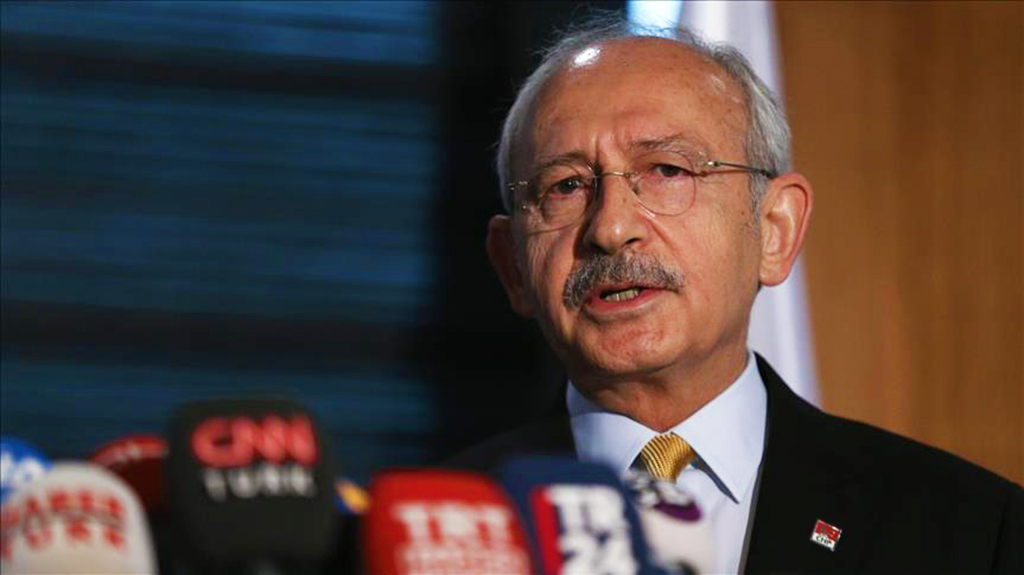Main opposition Republican People’s Party (CHP) Chairman Kemal Kılıçdaroğlu has been looking for ways to form a strong alliance ahead of the 2019 municipal elections. He has been exploring two options simultaneously: First, the CHP leadership has been in talks with the Good Party (İP) and the Felicity Party (SP), which were part of the ill-fated Nation Alliance in the June 2018 election. Sources familiar with the talks say that the CHP and the İP are already engaging in technical talks. According to media reports, Kılıçdaroğlu will meet SP Chairman Temel Karamollaoğlu soon.
At the same time, the CHP chairman recently held preliminary talks with Ahmet Türk from the Peoples’ Democratic Party (HDP). Kılıçdaroğlu hopes to secure the support of HDP voters, whose party has been marginalized in the wake of the designated terrorist organization PKK’s return to violence in July 2015.
Several questions remain unanswered: Could Kılıçdaroğlu ally himself with the İP and the HDP simultaneously in different districts? Can he afford to form an official partnership with the HDP, of which many CHP voters are extremely critical? Will İP Chairwoman Meral Akşener push the CHP to sideline the HDP as she did in the June 2018 elections? How will the People’s Alliance between the Justice and Development Party (AK Party) and Nationalist Movement Party (MHP) respond?
Yet one thing is clear: To form an alliance with the HDP, Kılıçdaroğlu has to come up with a magic formula that both his own base and the İP can stomach. To make this deal happen, Turkey’s political debate must move away from the “national and native” values on which the People’s Alliance agreed after the July 2016 coup attempt.
The fight against terrorist groups, including the Gülenist Terror Group (FETÖ) and the PKK, and building up Turkey’s clout over its southern neighbors, Syria and Iraq, form the backbone of the country’s new national contract. Unless the political arena’s center of gravity shifts away from those priorities, the HDP is doomed to marginalization. By extension, any movement trying to do b
usiness with the HDP is bound to suffer from a lack of legitimacy in the public eye.
In this sense, what the CHP leadership must do is to trigger a new political wave with the potential to weaken the national-native alliance. A short-term artificial agenda could do the trick, which is what opposition leaders have been trying to accomplish for weeks in Parliament. The CHP and the İP seek to create a new nationalist discourse with references to economic hardship, the controversial pledge of allegiance, Turkish identity, Syrian refugees, the Jamal Khashoggi murder and the Republic’s founder, Mustafa Kemal Atatürk. Needless to say, there is a division of labor between the two movements: While the İP tries to twist the MHP’s arm by focusing on the pledge of allegiance and Turkish identity, spokespeople for the CHP have been avoiding statements that could alienate Kurdish voters. Meanwhile, both parties have been criticizing the government’s economic performance and handling of the Khashoggi murder. For the time being, all major political parties are focused on mayoral nominations. Yet it would be no surprise to see the political debate evolve into a discussion of the HDP’s position in Turkish politics and a confrontation between two competing interpretations of nationalism. If the AK Party and the MHP stick together, Kılıçdaroğlu’s search for a strong alliance could prove futile.
[Daily Sabah, 19 November 2018]
In this article
- Opinion
- Daily Sabah
- Elections
- Fight Against Terror
- Gülenist Terror Group
- Iraq
- Kurdistan Workers' Party Terrorist Organization (PKK)
- Middle East
- Mustafa Kemal Atatürk
- Nation Alliance
- Opposition
- PKK - YPG - SDF - PYD - YPJ - SDG - HBDH - HPG - KCK - PJAK - TAK - YBŞ
- Syria
- Syrian Civil War
- Syrian Conflict
- Syrian Crisis
- Syrian Refugees
- Türkiye's Felicity Party (SP)
- Türkiye's Good Party (IP)
- Türkiye's Justice and Development Party | AK Party (AK Parti)
- Türkiye's Peoples' Democratic Party (HDP)
- Türkiye's Republican People's Party (CHP)
- Türkiye's Republican People’s Party (CHP) Chairperson
- Türkiye’s Nationalist Movement Party (MHP)

